# February 15: A Day That Shaped History
February 15 stands as one of history’s most eventful days, witnessing the rise and fall of empires, groundbreaking discoveries, and moments that shaped our modern world across centuries of human achievement.

Politics and Government Events on February 15
1933 – Assassination Attempt on President-elect Franklin D. Roosevelt
Giuseppe Zangara opened fire on President-elect Franklin D. Roosevelt in Miami, Florida. The bullets missed Roosevelt but struck Chicago mayor Anton J. Cermak, who later died from his wounds.
The failed assassination attempt highlighted the vulnerability of American political leaders during public appearances. Roosevelt’s survival allowed him to implement his New Deal programs that would transform American society.
1965 – Canada Adopts the Maple Leaf Flag
The distinctive red and white maple leaf flag officially replaced the Canadian Red Ensign as Canada’s national symbol. Prime Minister Lester B. Pearson championed the new design despite fierce political opposition.
The flag’s adoption marked a decisive step in Canada’s journey toward complete independence from Britain. The maple leaf became an instantly recognizable symbol of Canadian identity worldwide.
1991 – Visegrád Group Formed
Czechoslovakia, Hungary, and Poland signed the Visegrád Group agreement to coordinate their transition to free-market economies. The alliance emerged from the collapse of Soviet influence in Eastern Europe.
These nations committed to democratic reforms and eventual integration with Western European institutions. The partnership proved instrumental in their successful applications to NATO and the European Union.
1972 – José María Velasco Ibarra Overthrown

Ecuador’s military removed President José María Velasco Ibarra from power for the fourth time during his fifth presidency. The coup followed familiar patterns of political instability in the country.
Velasco Ibarra’s tumultuous career exemplified the challenges of democratic governance in Latin America. His repeated overthrows reflected deep divisions within Ecuadorian society and military intervention in politics.
Military and Naval History on February 15
1942 – Fall of Singapore
British General Arthur Percival surrendered Singapore to Japanese forces after a devastating assault. Approximately 80,000 Indian, British, and Australian soldiers became prisoners of war in the largest surrender of British-led forces in history.
The fall of Singapore shattered British prestige in Asia and demonstrated Japanese military superiority. This catastrophic defeat exposed the weakness of British colonial defenses and accelerated the empire’s eventual decline.
1944 – Monte Cassino Assault Begins
Allied forces launched their assault on the heavily fortified Monte Cassino monastery in Italy. The strategic position controlled key routes to Rome and had resisted multiple previous attacks.
The monastery’s destruction became one of World War II’s most controversial decisions. The battle would rage for months, costing thousands of lives before Allied forces finally captured the position.
1944 – Narva Offensive Commences
Soviet forces began the Narva Offensive against German positions in Estonia. The offensive aimed to break through German defensive lines and advance toward the Baltic states.
The battle for Narva became one of the Eastern Front’s bloodiest engagements. Both sides recognized the strategic importance of controlling this gateway to the Baltic region.
1945 – Dresden Bombing Continues
Allied bombers conducted the third day of devastating raids on Dresden, Germany. The massive bombing campaign created firestorms that consumed much of the historic city center.
The Dresden bombing remains one of World War II’s most debated military actions. The destruction of this cultural center raised questions about the ethics of strategic bombing campaigns.
1989 – Soviet Withdrawal from Afghanistan
The Soviet Union officially announced the complete withdrawal of its forces from Afghanistan. The nine-year occupation had cost thousands of Soviet lives and contributed to the USSR’s eventual collapse.
The withdrawal marked the end of the Soviet Union’s Vietnam-style quagmire. The conflict had demonstrated the limits of superpower military intervention in complex regional conflicts.
Science and Discovery Milestones on February 15
1946 – ENIAC Computer Dedicated

The University of Pennsylvania formally dedicated ENIAC, the first electronic general-purpose computer. This revolutionary machine weighed 30 tons and occupied an entire room.
ENIAC’s introduction launched the computer age and transformed scientific research. The machine’s ability to perform complex calculations opened new possibilities for weather prediction, nuclear research, and space exploration.
1949 – Dead Sea Scrolls Excavation Begins
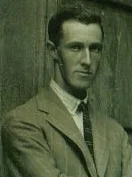
Gerald Lankester Harding and Roland de Vaux began systematic excavations at Qumran Cave 1. Their work would eventually uncover the first seven Dead Sea Scrolls, ancient Jewish texts of immense historical significance.
The discovery revolutionized understanding of Judaism during the Second Temple period. These manuscripts provided unprecedented insights into Jewish religious practices and beliefs during Jesus’ lifetime.
2001 – Human Genome Published

Scientists published the first draft of the complete human genome sequence in Nature magazine. This landmark achievement represented years of international collaboration and technological innovation.
The genome project opened new frontiers in medicine, genetics, and evolutionary biology. The complete genetic blueprint promised revolutionary advances in treating inherited diseases and understanding human evolution.
2013 – Chelyabinsk Meteor Explosion

A massive meteor exploded over Russia’s Chelyabinsk region, injuring 1,500 people when shock waves shattered windows. The event occurred hours before the unrelated asteroid 2012 DA14’s closest approach to Earth.
The meteor’s explosion highlighted Earth’s vulnerability to cosmic impacts. The incident prompted increased investment in asteroid detection and planetary defense systems worldwide.
Cultural and Arts Events on February 15
1940 – Creston Saxophone Sonata Premiered

Paul Creston’s Saxophone Sonata received its official premiere at Carnegie Chamber Hall. Saxophonist Cecil Leeson, who had commissioned the work, performed alongside the composer.
The premiere elevated the saxophone’s status as a serious concert instrument. Creston’s composition demonstrated the instrument’s expressive capabilities beyond jazz and popular music contexts.
1972 – Sound Recording Copyright Protection
The United States granted federal copyright protection to sound recordings for the first time. This landmark legislation protected musicians’ and record companies’ intellectual property rights.
The new copyright protections transformed the music industry’s business model. Artists gained stronger legal foundations for controlling their work and receiving fair compensation for their recordings.
1923 – Greece Adopts Gregorian Calendar
Greece became the last European country to adopt the Gregorian calendar system. The change brought the nation into alignment with international dating standards.
The calendar reform reflected Greece’s modernization efforts and European integration. The transition required adjusting thousands of historical records and religious observances to match Western dates.
Religious and Social Events on February 15
1952 – King George VI Burial

King George VI was laid to rest in St George’s Chapel at Windsor Castle. The ceremony marked the end of his 16-year reign and the beginning of the Elizabethan era.
The king’s death thrust his 25-year-old daughter Elizabeth onto the throne. His burial drew representatives from across the British Empire and Commonwealth nations to pay their respects.
2003 – Massive Global Peace Demonstrations
Anti-war protests occurred simultaneously in over 600 cities worldwide, opposing the impending invasion of Iraq. Organizers estimated between eight and 30 million participants in history’s largest peace demonstration.
The unprecedented global coordination demonstrated the power of international civil society. Despite the massive turnout, the protests failed to prevent the Iraq War’s commencement weeks later.
1992 – Jeffrey Dahmer Sentencing

Serial killer Jeffrey Dahmer received 15 life sentences in Milwaukee for his horrific crimes. The trial had captivated and horrified the American public for months.
Dahmer’s sentencing provided some closure for victims’ families and the Milwaukee community. The case highlighted failures in the criminal justice system and police response to early warning signs.
Business and Economic Events on February 15
1971 – UK and Ireland Decimal Day
The United Kingdom and Ireland completed the decimalization of their currencies on “Decimal Day.” The transition replaced the complex pounds, shillings, and pence system with a simplified decimal structure.
The massive undertaking required extensive public education campaigns and business preparation. Banks, retailers, and consumers adapted to the new system that aligned with international monetary standards.
1982 – Ocean Ranger Drilling Rig Disaster
The Ocean Ranger oil drilling rig sank during a severe storm off Newfoundland’s coast, killing all 84 workers aboard. The tragedy highlighted the dangers of offshore oil exploration in harsh maritime conditions.
The disaster prompted comprehensive safety reforms in the offshore drilling industry. New regulations improved emergency procedures, safety equipment, and weather monitoring systems for offshore operations.
1996 – Long March 3B Rocket Disaster

A Chinese Long March 3B rocket carrying an Intelsat satellite veered off course and crashed into a rural village near Xichang. The accident killed between six and 100 people, with exact casualty figures disputed.
The disaster dealt a severe blow to China’s commercial space launch ambitions. International customers questioned the safety and reliability of Chinese rocket technology for expensive satellite deployments.
Transportation and Infrastructure on February 15
1952 – Distant Early Warning Line Agreement

Canada and the United States agreed to construct the Distant Early Warning Line across the Arctic. The radar system would provide advance warning of Soviet bomber attacks during the Cold War.
The DEW Line represented unprecedented cooperation between the two nations. The project required massive logistics operations to transport equipment and personnel to remote Arctic locations.
1925 – Nome Serum Run Completion
The second delivery of diphtheria serum arrived in Nome, Alaska, completing the famous serum run. Dog sled teams had raced across treacherous terrain to deliver life-saving medicine to the isolated community.
The heroic journey captured international attention and demonstrated the courage of mushers and their dogs. The serum run became legendary, inspiring the annual Iditarod Trail Sled Dog Race.
2010 – Halle Train Collision
Two passenger trains collided in Halle, Belgium, killing 19 people and injuring 171 others. The accident occurred during morning rush hour, maximizing casualties among commuters.
The collision prompted investigations into railway safety systems and signal operations. Belgian authorities implemented improved safety measures to prevent similar accidents in the future.
Sports and Recreation on February 15
1961 – Sabena Flight 548 Crash
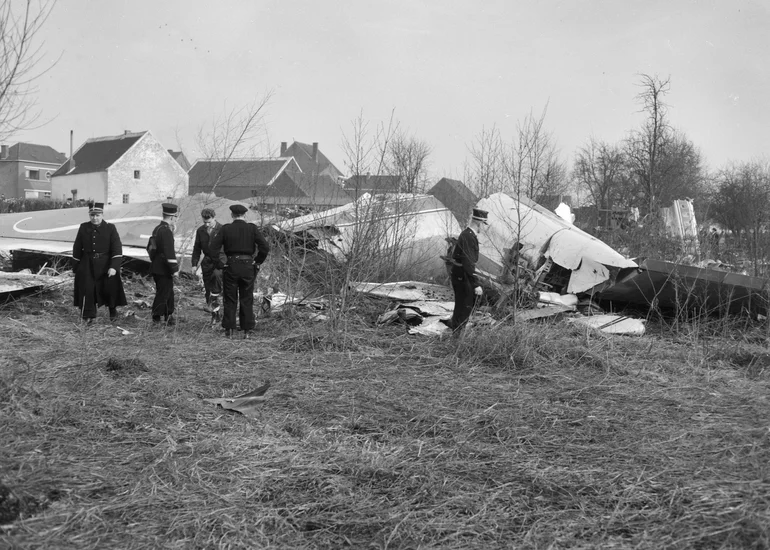
Sabena Flight 548 crashed in Belgium, killing 73 people including the entire United States figure skating team. The tragedy occurred as the team traveled to the World Championships in Prague.
The crash devastated American figure skating and set back the sport’s development for years. The loss of coaches, skaters, and officials created a void that took decades to fill.
1970 – Dominicana de Aviación Crash

A McDonnell Douglas DC-9 operated by Dominicana de Aviación crashed into the Caribbean Sea, killing 102 people. The victims included members of the Puerto Rico women’s national volleyball team and boxer Carlos Cruz.
The disaster highlighted aviation safety concerns in the Caribbean region. The loss of the volleyball team represented a significant blow to Puerto Rican sports and national pride.
1992 – Air Transport International Crash

Air Transport International Flight 805 crashed near Toledo Express Airport in Ohio, killing all four crew members aboard. The cargo flight went down during approach in challenging weather conditions.
The accident prompted investigations into cargo flight safety procedures and pilot training. Aviation authorities implemented stricter oversight of cargo operations and crew qualifications.
Notable Births on February 15
1564 – Galileo Galilei Born

The future astronomer and physicist who would revolutionize our understanding of the universe entered the world in Pisa, Italy. His early education in mathematics and natural philosophy shaped his scientific approach.
Galileo’s telescopic observations would later challenge Church doctrine and establish modern astronomy. His conflicts with religious authorities made him a symbol of scientific freedom and rational inquiry.
1904 – Harold Arlen Born
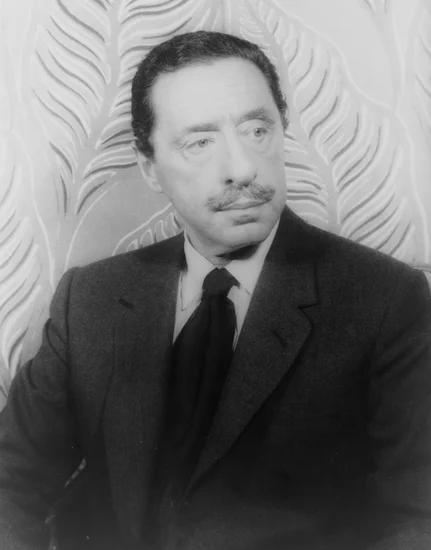
The future composer of “Over the Rainbow” and countless other American songbook classics was born in Buffalo, New York. His childhood exposure to synagogue music influenced his later melodic style.
Arlen would become one of America’s most celebrated composers, creating music for Broadway and Hollywood. His collaborations with lyricists produced timeless songs that defined American popular music.
1909 – Miep Gies Born
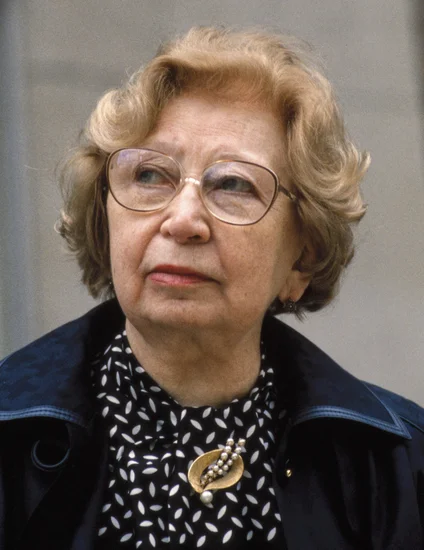
The Austrian-born woman who would help hide Anne Frank and her family during World War II entered the world in Vienna. Her family moved to the Netherlands when she was young.
Gies risked her life to protect the Frank family and preserve Anne’s diary for posterity. Her courage and compassion became symbols of resistance against Nazi persecution.
1934 – Niklaus Wirth Born
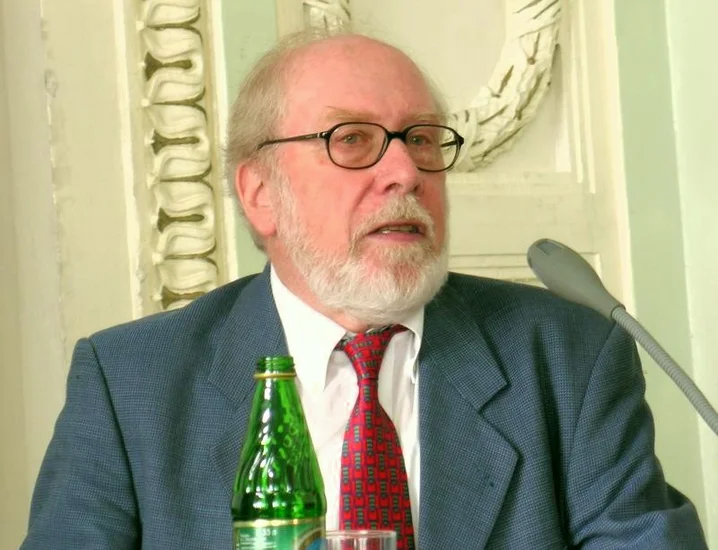
The Swiss computer scientist who would create the Pascal programming language was born in Winterthur, Switzerland. His early interest in mathematics and engineering set his career path.
Wirth’s contributions to computer science education and programming language design influenced generations of programmers. His emphasis on structured programming helped establish modern software development practices.
1954 – Matt Groening Born

The future creator of “The Simpsons” and “Futurama” was born in Portland, Oregon. His childhood experiences in a quirky family would later inspire his animated characters.
Groening’s satirical cartoons became cultural phenomena, influencing animation and comedy worldwide. His work transformed television animation from children’s entertainment to sophisticated social commentary.
1964 – Chris Farley Born

The beloved comedian and “Saturday Night Live” star was born in Madison, Wisconsin. His large personality and physical comedy style emerged during his college years.
Farley’s energetic performances and memorable characters made him one of comedy’s most beloved figures. His tragic early death robbed the entertainment world of a uniquely talented performer.
Notable Deaths on February 15
1928 – H.H. Asquith Dies
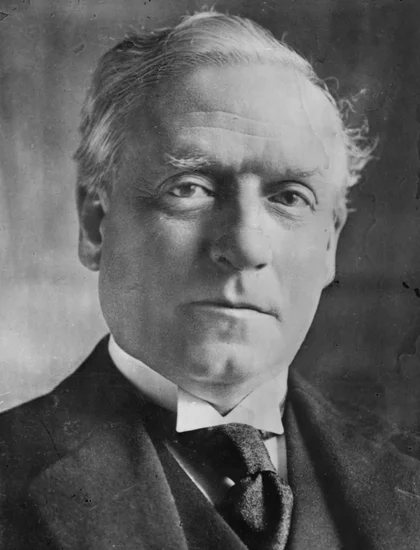
The former British Prime Minister who led the country during World War I’s early years passed away at age 75. His Liberal government had navigated the crisis of the war’s outbreak.
Asquith’s death marked the end of an era in British Liberal politics. His leadership during the war’s beginning established precedents for wartime governance and coalition building.
1965 – Nat King Cole Dies
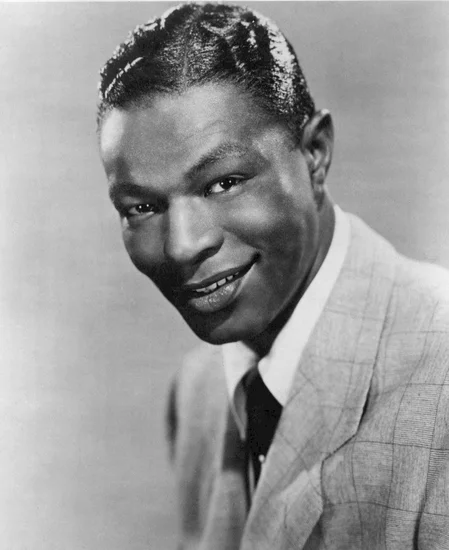
The legendary singer and pianist succumbed to lung cancer at age 45, silencing one of America’s most distinctive voices. His smooth style had broken racial barriers in popular music.
Cole’s death deprived the world of a pioneering artist who had helped integrate American entertainment. His recordings continued to influence singers and musicians for generations.
1988 – Richard Feynman Dies

The Nobel Prize-winning physicist and beloved teacher passed away at age 69 after a long battle with cancer. His contributions to quantum mechanics and particle physics revolutionized modern science.
Feynman’s death marked the loss of one of the 20th century’s most brilliant and charismatic scientists. His ability to explain complex physics concepts made him a beloved figure in popular culture.
1996 – McLean Stevenson Dies
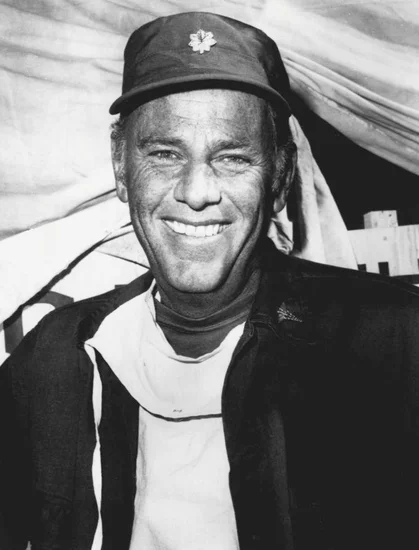
The actor best known for playing Lieutenant Colonel Henry Blake on “M*A*S*H” died at age 66. His departure from the hit series had shocked television audiences years earlier.
Stevenson’s death reminded fans of his contributions to one of television’s most beloved series. His portrayal of the bumbling but caring commander had provided both humor and humanity to the show.
2023 – Raquel Welch Dies

The iconic actress and international sex symbol passed away at age 82 after a brief illness. Her breakthrough role in “One Million Years B.C.” had made her a global phenomenon.
Welch’s death marked the end of an era in Hollywood glamour and international stardom. Her beauty and talent had made her one of the most recognizable faces in entertainment history.
Holidays and Observances on February 15
National Flag of Canada Day

Canadians celebrate the anniversary of their distinctive maple leaf flag’s adoption in 1965. The red and white banner replaced the Canadian Red Ensign as the nation’s official symbol.
The holiday reflects Canada’s journey toward complete independence from Britain. Flag-raising ceremonies and patriotic events occur across the country to honor this important national symbol.
Total Defence Day (Singapore)
Singapore commemorates the importance of national defense and civilian preparedness. The observance reminds citizens of their role in protecting the nation’s security and sovereignty.
The day includes emergency drills, educational programs, and community events. Singapore’s comprehensive defense strategy emphasizes the participation of all citizens in national security efforts.
Susan B. Anthony Day (Florida)
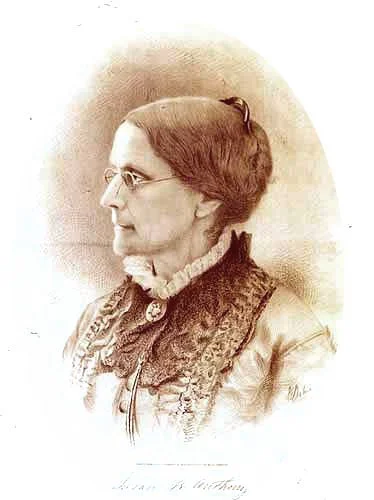
Florida honors the pioneering women’s rights activist who fought tirelessly for women’s suffrage. Anthony’s activism helped lay the groundwork for the 19th Amendment’s passage.
The observance celebrates Anthony’s contributions to gender equality and democratic participation. Educational programs highlight her role in advancing women’s rights and political representation.
Liberation Day (Afghanistan)
Afghanistan observes the anniversary of significant historical events in the nation’s struggle for independence. The day commemorates various liberation movements throughout Afghan history.
The observance reflects Afghanistan’s complex history of foreign occupation and resistance. Cultural events and ceremonies honor those who fought for national sovereignty and independence.
